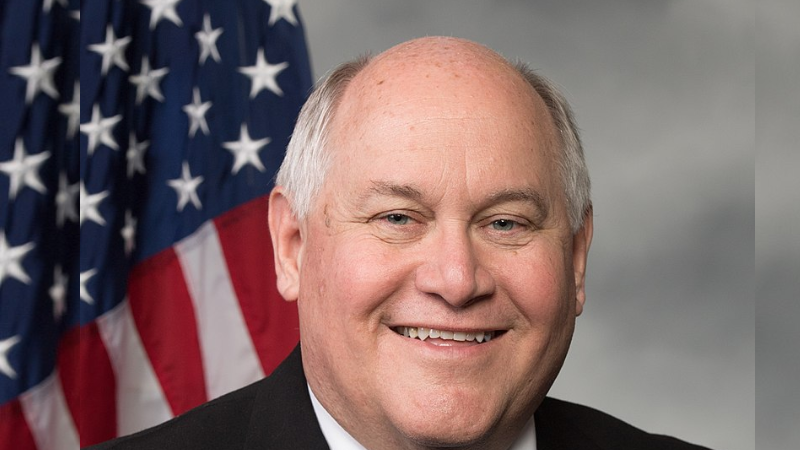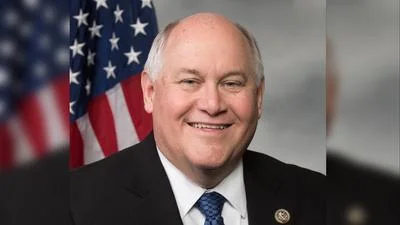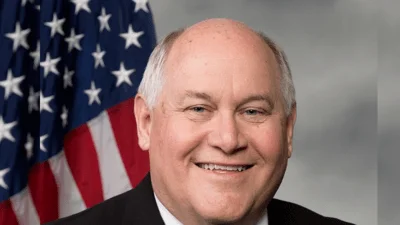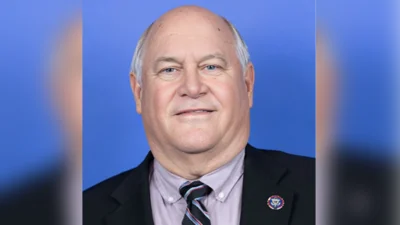Congressman Ron Estes (R-Kansas) | Congressman Ron Estes Official Website (https://estes.house.gov)
Congressman Ron Estes (R-Kansas) | Congressman Ron Estes Official Website (https://estes.house.gov)
Reps. Ron Estes (R-Kansas) and John Larson (D-Connecticut) introduced the American Innovation and R&D Competitiveness Act last week, and it has quickly garnered important support from business leaders across key industries urging Congress to act and adopt this legislation.
"The requirement to amortize research and development (R&D) expenditures over a five-year period, instead of immediately expensing them, makes it more difficult for midsize businesses to invest in R&D, said Jason Cox, President, Cox Machine, Wichita, Kansas. "These businesses may not have the cash flow to wait for the credit to be realized over time. Without action, midsize businesses could reduce their investment in R&D, potentially resulting in decreased innovation and competitiveness in the middle market business sector."
"Without the small businesses in our supply chain, many of them family owned, building the next generation of aerospace and defense technology would not be possible. Unfortunately, last year’s change to the tax code requiring R&D expenses to be amortized over five years has limited small businesses’ ability to make these types of investments," said Eric Fanning, President and CEO, Aerospace Industries Association. "For many small businesses, the financial burden has already multiplied and their significantly larger 2022 tax bills are paralyzing. Rather than investing in R&D, which includes growing their workforce, many are at a standstill with how to proceed unless Congress acts soon."
"R&D is the driving force behind semiconductor innovations that have advanced modern technology and made the world smarter, more efficient, and better connected," said John Neuffer, President and CEO, Semiconductor Industry Association. "U.S. semiconductor companies invest an average of one-fifth of their revenues in R&D annually, among the largest shares of any sector. Restoring the longstanding policy of allowing the immediate, full deduction of R&D investments would help expand U.S.-based R&D and innovation, spur economic growth and job creation, and strengthen America’s tech workforce. We commend Reps. Estes and Larson for introducing the American Innovation and R&D Competitiveness Act and look forward to working with bipartisan leaders in Congress to swiftly pass this critical legislation."
"Supporting and encouraging R&D investments will create jobs for small businesses, especially in STEM fields which are critical positions to the plastics industry," said Matt Seaholm, President and CEO, Plastics Industry Association. "Every day our members innovate and engineer ways to make plastics more sustainable and this legislation will ensure that innovation, keeping plastics in the circular economy and not in the environment."
"ITI appreciates the momentum the American Innovation and Jobs Act has seen on Capitol Hill and is grateful for the leadership of Congressmen Larson and Estes, and the bill’s more than 60 bipartisan co-sponsors," said Jason Oxman, President and CEO, Information Technology Industry Council. "Encouraging U.S. research and development should be a core mission of policymakers. This new legislation will advance the U.S. economy, create opportunities for U.S. workers, and allow the U.S. to compete meaningfully with its global counterparts."
"The U.S. is one of just two developed nations that taxes R&D this way, and given that China actually provides a 200 percent super-deduction for R&D investments, it simply makes no sense to impose this limitation on manufacturers here at home," said Aric Newhouse, senior vice president of policy and government relations, National Association of Manufacturers in The Hill.
"R&D investments are vital to businesses, like Bekum America Corporation, that rely on highly skilled workers and innovation," said Steven London, President and COO, Bekum America Corporation. "It’s time for Congress to repeal the amortization requirement so that the plastics industry can continue to invest in our communities, manufacture essential products and remain competitive."
"Under the current tax law, our small family-owned business will have to limit growth and face difficult decisions when it comes to innovating," said Colby Coombs, CFO, Westminster Tool. "Supporting full expensing R&D will give us the ability to compete, create more jobs, improve our products, and develop our manufacturing processes for the medical device industry.
Reps. Darin LaHood (R-Illinois), Suzan DelBene (D-Washington), Jodey Arrington (R-Texas), Jimmy Panetta (D-California) and 60 additional original cosponsors joined Reps. Estes and Larson in introducing the American Innovation and R&D Competitiveness Act last week. Rep. Estes also delivered remarks on the House floor on Thursday.
Original source can be found here.





 Alerts Sign-up
Alerts Sign-up